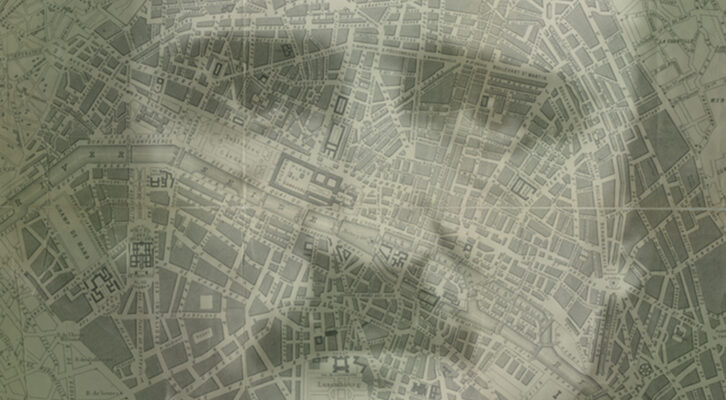Recent History: Lessons From Obama, Both Cautionary
and Hopeful
Jonathan Reiber on America's Fragile Union
When the world goes sideways, as it sometimes does, it’s easy to fall into anxiety, regret, and doubt. We know this all too well from life in 2020.
Following Barack Obama’s presidency, Donald Trump’s election sent us into serious trouble as a country; for four years it was bad but then it got worse. Under the onset of the novel coronavirus, the president denied the disease and its impact while the rest of us watched the virus kill over 245 thousand Americans and put over 30 million of us out of work. We saw violence and aggression emanating from the presidency. We saw security forces exploited for political ends. We saw young women and men murdered by the police who’d sworn to protect them. Yet the American people wouldn’t give in. We stood in a wall of protest and resistance. We studied our history. We called the country to reckon with its past. From the Women’s March to the movement for Black Lives Matter to the election, over the last four years we found ourselves in a perpetual confrontation with aggression. It was a confrontation for the soul of the nation that bore itself out in the streets and then in the polls.
The soul of America was on the ballot in 2020, it’s true, and we succeeded in preserving the Union (so far) because Americans stood up in record numbers to vote. In Georgia, a state that has long suffered under voter suppression, Black women and men stood in line for hours. In Arizona, members of the Navajo Nation rode to the polls on horseback to stand in line. Democracy dies in darkness, says The Washington Post, but it came to life on flat shoes and saddles and in millions of ballots sent through the US postal service as good people refused to support hatred and aggression.
Except for the 70 million that did.
I have thought long about the lessons America can draw from Barack Obama and his presidency. There is much that comes from looking back, especially given all we have been through as a country. It can hurt to look back, of course, but it will hurt even more if we don’t learn from the past. Today the soul of the country lies wounded, riven by hatred, and in need of careful attention. From the jarring transition of Barack Obama to Donald Trump to today, we see how leadership matters for the health of the country, how the words we speak and write shape the Union, and how the success of our democracy depends on each of us. No one leader can save us, we know, and every vote counts.
Now we can add Barack Obama’s memoir to the list of resources on which to draw as we try to make our way forward. Like many, Obama won me over when he gave that speech to the Democratic Convention in 2004, but it was only after he won the Iowa caucus in 2007 that I had the guts to quit my job and become a full-time volunteer for his campaign. Campaigning for Barack Obama was one of the greatest joys of my life as it gave me the chance to meet Americans all over the country of every color and creed. Later, my work on his campaign led to a political appointment in the Defense Department, but it was the experience of meeting voters that solidified my faith in the decency of the American people and in our Republic.
One of the early moments of leadership I remember from that period was Obama’s first speech on race at the height of the campaign in March of 2008. In it he confronted and explained the words of his former pastor, the Reverend Jeremiah Wright. As many will remember, a video had surfaced of Wright criticizing the country, at one point saying, “God damn America!” At the time, I remember speaking with fellow Obama supporters in Washington, DC, and arguing that it would be wise for a surrogate to seize the moment to address issues of race and explain the history of the Black church to white Americans.
Instead, Obama did it himself. It was a bold leadership moment. In the speech, Obama excoriated Wright for his derogatory words, but then Obama turned to the American people to address the history of racism and oppression in America. “The anger is real,” Obama said, “it is powerful, and to simply wish it away, to condemn it without understanding its roots, only serves to widen the chasm of misunderstanding that exists between the races.” He named that speech “A More Perfect Union” and the lines speak as clearly to us today as they did then. If we don’t face our past, if we don’t seek to understand the roots of aggression and how to transform it, the country will remain crippled.
In thinking about Obama now, in thinking about the work ahead to confront the racism and vitriol we’ve seen unleashed online over these past years, one lesson rises above the rest. In reading Dreams from My Father and many of Obama’s speeches, you see a man who had to find a center within himself in order to live in the world. His father was absent. He was raised by his mother and grandparents, a man both Black and white, tied by blood and experience to the world beyond the United States. Sometimes I think his journey to shape his identity and face the world alone is what equipped him to lead, write, and teach the rest of us about our political agency. He had mastered himself. Only by doing so could he help the country effectively.
Over the last four years, I’ve thought often about lines he said in a eulogy for four police officers killed in the racial violence of the summer of 2015. “There are times when we are overwhelmed by sudden calamity, natural or manmade,” he said. “All of us, we make mistakes. And at times we are lost. And as we get older, we learn we don’t always have control of things—not even a President does. But we do have control over how we respond to the world. We do have control over how we treat one another.” I think about those lines every day. Life doesn’t owe us anything; no one will saddle up to whisper wisdom in your ear to help. In the face of life’s disruptions, whether from age of illness or national calamity, our future as a country comes down to each of us. To the choices we make. To the way we live our values as individuals and as a collective. Leadership matters. Words matter.
The American soul has both goodness and evil within it, just like each of us. From Abraham Lincoln to Obama to today, we have kept the Union together by striving to overcome mutual hostility and narrow self-interest, by working diligently to make our society more just and more free. By deciding to lead, by choosing words that uplift the whole, by taking our citizenship seriously and never taking this democracy for granted. The world is never going to get less complicated. Our best defense is to take the world for what it is, never as we’d prefer it to be, and do everything we can to make it better.
If you’re struggling with what to do next, if you wonder about your own political path, reading is as good a place as any to start. And in this case, I think we can all spot a valuable resource when we see one.
Previous Article
The Living Literature of Street ProtestNext Article
What Makes a GreatAmerican Essay?




















